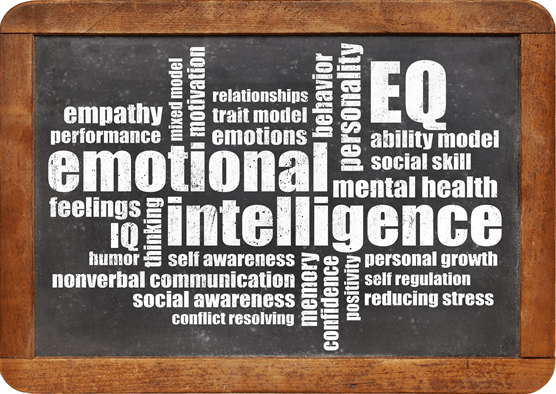Has My Mental Illness Affected My Personality?

First introduced in a previous article released by Challenge the Storm , this article takes a closer look at the relationship between personality and mental health conditions, as seen through the eyes of of someone who has experienced the highest highs and lowest lows. To get caught up on the original piece, click here.
Personality tests can help you understand why you are energized or drained in certain situations or by certain activities. One well known personality test is Myers Briggs. Based on psychological types described by C. G. Jung, the mother-daughter duo Isabel Briggs Myers (daughter) and Katharine Briggs (mother) developed four categories with two extremes on a continuum: 1
- Favorite world: Do you prefer to focus on the outer world or on your own inner world? This is called Extroversion (E) or Introversion (I).
- Information: Do you prefer to focus on the basic information you take in or do you prefer to interpret and add meaning? This is called Sensing (S) or Intuition (N).
- Decisions: When making decisions, do you prefer to first look at logic and consistency or first look at the people and special circumstances? This is called Thinking (T) or Feeling (F).
- Structure: In dealing with the outside world, do you prefer to get things decided or do you prefer to stay open to new information and options? This is called Judging (J) or Perceiving (P).
Before
Prior to my break, my results said ENFP. Which I assumed was true. Now, however, I am convinced I am an ENFJ. Until they got my medications right, I could not cope with the unexpected or anything impulsive. My brain would simply fritz. Any request to do something immediately or unplanned, I would refuse. Today, I experience an internal “thrill” when I can decide to go to the grocery story after running some errands or shopping.
“ENFJs are idealist organizers, driven to implement their vision of what is best for humanity. They often act as catalysts for human growth because of their ability to see potential in other people and their charisma in persuading others to their ideas…. The ENFJ is ambitious, but their ambition is not self-serving: rather, they feel personally responsible for making the world a better place.” 2
The pre-break-me kept my focus on achieving what I perceived to be the American dream. I wasn’t as interested in helping others as I was climbing the corporate ladder. In my race to the top, I told myself that once I achieved what I deemed as professional success, I would have the credibility to share my corporate know-how with others. But first, I needed to take care of number one. Only then would I be able to help others (or so I thought).
The ENFJ is ambitious, but their ambition is not self-serving: rather, they feel personally responsible for making the world a better place.
After
Many years and a psychotic break later, I want to share a very different set of wisdom with others, so they can avoid the pitfalls I lived through. I want to communicate to “normal” people the problems and challenges those of us with mental illness face: see how certain situations look through our eyes, and experience life in our skin for a single moment of time.
I believe my mental health condition has changed my personality - for the better, I might add. I can’t honestly tell you that I was a strong P (perceiving) before. “Judging (J) means I use my decision-making (Judging) preference (whether it is Thinking or Feeling) in my outer life. To others, I seem to prefer a planned or orderly way of life, like to have things settled and organized, feel more comfortable when decisions are made, and like to bring life under control as much as possible.” 3
Today, being more task-oriented gives me a deeper level of satisfaction. I have always enjoyed accomplishing a task. I have always relished working constructively in a team. Today, I am not as concerned with the “corporate ladder”. I have always been advocating a cause as a volunteer, even while working full-time. Now, my full-time work is advocating for the very cause which nearly took my life.
When looking at the relationship between my personality and my mental illness, it may appear to be a chicken or the egg type question. Did my mental health condition cause me to become more of a “J” or did my personality choose to cope with my mental illness by drawing upon my inner strength as a “J”? I don’t know. But in either case, I am far happier and more content, because of it. Perhaps because I was undiagnosed for so many years, I always felt that life would unexpectedly blindside me, and I would end up sick in bed for weeks. But all those times being knocked down spurred me on to work harder when I returned to health. Did this contribute to a vicious cycle?
What’s next?
According to Myer’s Briggs, the goal is to be evenly balanced between the two extremes. Ironically, now that I feel more “in control” of my life, I can do things more impulsively knowing I will return to my routine. I can go out to dinner, drink glass of wine, and eat a piece of cheesecake. I know that the next morning I will be up exercising and watching what eat and drink.
For me, freedom comes through organization. I know colleagues that are primarily Introverted but have willingly learned how to tell their story to help end stigma. I have both Introverted and Extroverted colleagues who are willing to share the mental health tools they have developed to combat negative thoughts and feelings. I know others that ask trusted loved ones and close friends to be a sounding board for feedback on how they handle social situations. I believe all of us, Introverted or Extroverted, Judging or Perceiving, must strengthen our inner landscape of feelings and thoughts to maintain a positive attitude living with a mental health condition. I believe we would collectively say that we feel more “in control” because of these enhancements in our character.










